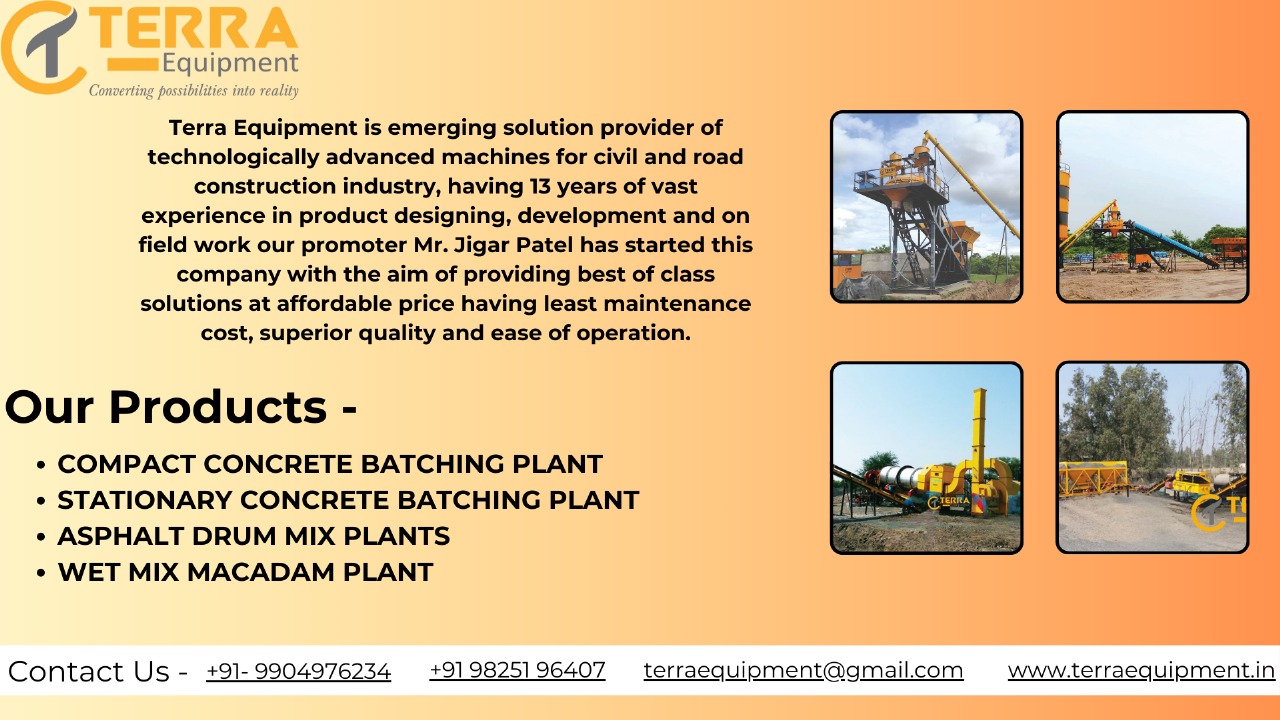Asphalt Batch Mix Plant
An AsphaltBatch Mix Plant is an engineering marvel used to produce hot mix asphalt
(HMA) in batches. This plant combines different sizes of aggregates, bitumen,
and filler material in precise proportions to create asphalt that meets
specific quality standards. The batching process ensures uniformity and
high-quality mix, making it ideal for paving roads, highways, runways, and
other surfaces. These plants are widely used due to their ability to produce
customizable mixes and accommodate a variety of pavement needs.
Top 10 FAQs of Asphalt Batch Mix Plant
- What is an asphalt batch mix
plant?
It's a plant used to produce asphalt mixture in batches, ensuring uniform and high-quality mixes. - How does a batch mix plant
differ from a drum mix plant?
Batch mix plants produce asphalt in batches with precise control, while drum mix plants produce asphalt continuously and are typically more cost-effective but less customizable. - What are the main components
of an asphalt batch mix plant?
Components include cold aggregate feeder, dryer drum, burner, dust collector, elevator, vibrating screen, hot bins, mixing tower, and control panel. - What capacities are
available for asphalt batch mix plants?
Capacities typically range from 80 TPH (tons per hour) to 260+ TPH. - Can recycled asphalt (RAP)
be used in batch mix plants?
Yes, modern plants can incorporate RAP for environmentally friendly and cost-effective production. - How is quality controlled in
batch mix plants?
Quality is ensured through precise weighing, screening, and timed mixing cycles controlled via automated systems. - Is it possible to change mix
designs easily in a batch mix plant?
Yes, it allows quick recipe changes, making it suitable for projects with varied specifications. - What is the typical fuel
used in the plant’s burner?
Common fuels include diesel, furnace oil, natural gas, or LPG. - How are emissions managed in
batch mix plants?
With dust collectors, baghouse filters, and other pollution control systems that meet environmental standards. - What is the lifespan of an
asphalt batch mix plant?
With proper maintenance, a plant can last 15–20 years or more.
Applications of Asphalt Batch Mix Plant
- Highway and Expressway
Construction
- Airport Runway and Taxiway
Paving
- Urban and Rural Road
Development
- Bridge and Flyover Surfacing
- Industrial Complex Roadways
- Parking Lot and Driveway
Surfacing
- Race Tracks and Sports
Grounds
- Asphalt Resurfacing and
Patching
- Port and Harbor
Infrastructure
- Recycling Projects Using RAP
(Reclaimed Asphalt Pavement)
Benefits of Asphalt Batch Mix Plant
- High Precision and
Consistency:
Batch processing ensures accurate mixing of ingredients. - Customizable Mixes:
Easily changeable recipes to meet varied project requirements. - Efficient Resource Use:
Capable of incorporating RAP, reducing material costs. - Environmental Compliance:
Modern systems come with advanced pollution control. - Automation and Control:
Advanced PLC and SCADA systems enable real-time monitoring and adjustment. - Durable and Reliable:
Built to withstand harsh environments and long operational hours. - Improved Road Quality:
Produces mixes that enhance road longevity and performance. - Quick Installation and
Mobility (for portable models):
Some models can be moved and installed quickly at new sites. - Energy Efficient:
Equipped with efficient burners and heat recovery systems. - Reduced Downtime:
Modular design and easy maintenance reduce plant downtime.
Contact us more details:
Call: +91 98251 96407 +91- 9904976234
Email:
terraequipment@gmail.com
Address: Survey No- 231, Dediyasan
Village, Opp Lilaba Weigh Bridge , Mehsana -384002 Gujarat.

